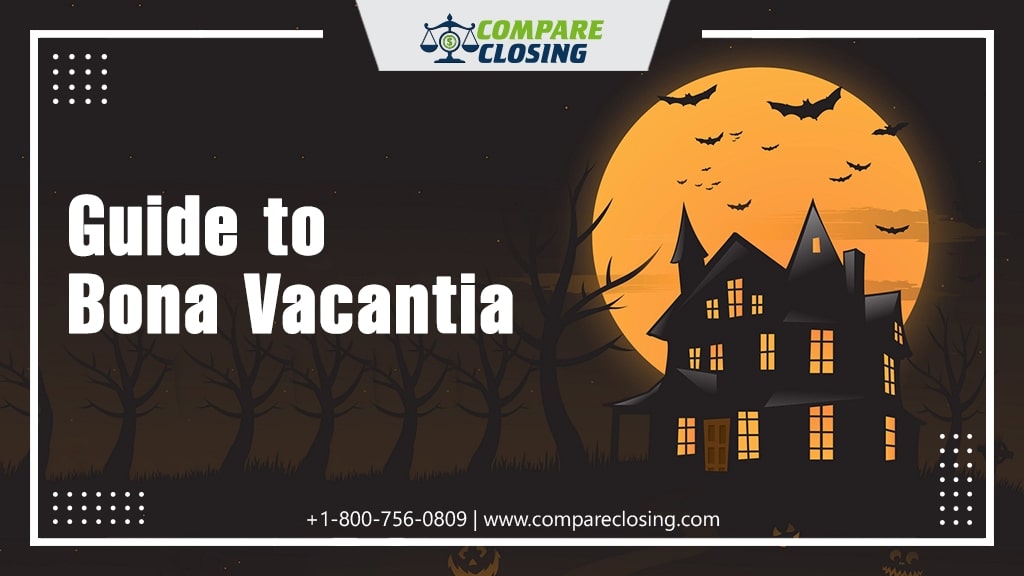Table of Contents
- What Are Netting Escrows & How Does It Work?: The Best Guide - January 2, 2024
- The Secret About Prescriptive Easement: Top Guide 1 Must Know - December 4, 2023
- About Home Equity Loans In Texas And How Can One Obtain It - November 27, 2023
Introduction to Bona Vacantia
In Latin, Bona vacantia means vacant goods or ownerless goods, it is a legal term used when the property is left without any clear owner.
The owner of the bona vacantia property may have abandoned, mislaid, or forgotten the property.
Bona vacantia is also applied to property left by someone who has died without making a legal will and has no known heirs.
The way a bona vacantia property is handled could depend on the jurisdiction. In most cases, the government holds the property until the rightful owners or heirs recover it.
A probate court will frequently be responsible for distributing the assets of the estate to the heirs, in the case where a person has died intestate.
More on Bona Vacantia
If a Bona vacantia property, remains unclaimed after a stipulated period of time, goes to government ownership.
In other cases, the government becomes the custodian for bona vacantia property into perpetuity.
The most common situations when a property or asset becomes Bona Vacantia
- In case of when a person dies without a will and has no known heirs or next of kin
- In case when a business or unincorporated association disintegrates and the assets are not distributed rightly
- When a trust fails because the estate assets have not been correctly identified and added to the trust or
- When without leaving any contact information the property owner moves away
The 2 Different types of Bona Vacantia
- The first type of bona vacantia property is an abandoned property that gets turned over to the state after a number of years of inactivity. This also includes dormant financial accounts which except for the posting of interest or dividends has no activity occurred for many years. Inactive checking and savings accounts, individual retirement accounts (IRAs), 401(k) accounts, and brokerage accounts are all examples of this type.
- Another type of Bona Vacantia is unclaimed funds which are money and other assets where the owner cannot be located. Usually, this occurs when a person moves and does not leave a forwarding address. In many cases, these owners might not even know that they have unclaimed money from – the government, a former employer, or any other source.
Examples of unclaimed funds
- Unclaimed back wages,
- Life insurance funds,
- Pension money,
- Unclaimed deposits from bank failures,
- Credit union closures,
- Unclaimed or undelivered tax refunds,
- Refunds from an FHA-insured mortgage
In the United States of America, every state has its own laws regarding abandoned and unclaimed property.
Financial institutions are required by state law to transfer assets held in dormant financial accounts to the state’s treasury after a certain period of time.
The state takes a decision on who inherits the property, by prioritizing close relatives, like the spouses or civil partners and children, then more distant relatives like the parents, siblings, grandparents, and their descendants.
In certain states, the descendants of the deceased’s spouse who are not also the descendants of the deceased are allowed to inherit provided there are no other heirs.
If there are no heirs, bona vacantia property is escheated to the state. Escheatment – means the government’s right to take ownership of unclaimed property or estate assets.
Conclusion
Bona vacantia, which is known as vacant goods or ownerless goods is a property that does not have a clear owner.
These properties may have been forgotten, abandoned, mislaid, or unclaimed by the rightful owner.
When a property owner dies without a will and no known heirs, such person’s property is bona vacantia.
In the United States of America, every state maintains a database that people can use and search for unclaimed funds and assets belonging to them.
Amanda Byford
Amanda Byford has bought and sold many houses in the past fifteen years and is actively managing an income property portfolio consisting of multi-family properties. During the buying and selling of these properties, she has gone through several different mortgage loan transactions. This experience and knowledge have helped her develop an avenue to guide consumers to their best available option by comparing lenders through the Compare Closing business.





